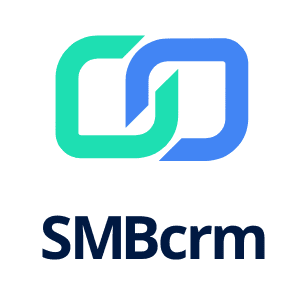
In today’s competitive business landscape, effective sales pipeline management is crucial for sustained success. A well-managed sales pipeline ensures that opportunities are properly nurtured and progress smoothly through each stage, ultimately leading to increased revenue and growth. At the heart of an efficient sales pipeline lies the use of CRM (Customer Relationship Management) systems. These platforms provide businesses with the tools to organize, track, and analyze customer interactions and sales activities throughout the pipeline. By leveraging sales pipeline software or a dedicated sales pipeline CRM, companies can streamline their processes, improve sales team collaboration, and gain valuable insights into their sales performance. With the right CRM solution in place, businesses can navigate their sales pipeline with confidence, optimizing their strategies and driving towards greater success.
The sales pipeline is a visual representation of the stages that a prospect goes through before becoming a customer. It typically includes stages such as lead generation, qualification, proposal, and closing. Effectively managing the sales pipeline involves closely monitoring the progress of leads through these stages, ensuring that no potential opportunity is overlooked or neglected. This process is crucial for sales teams as it helps them prioritize leads, allocate resources efficiently, and forecast future sales revenue. Sales software, often integrated into CRM systems, plays a key role in streamlining this process by providing a centralized platform for tracking and managing leads. By utilizing sales pipeline CRM, businesses can gain valuable insights into their sales process, identify areas for improvement, and ultimately drive more successful sales outcomes.
CRM plays a crucial role in effective sales management by providing a centralized platform for organizing and tracking leads and opportunities. Sales teams can easily manage and prioritize leads, ensuring no potential sales slip through the cracks. Additionally, CRM systems allow for the monitoring of sales team performance, enabling managers to identify top performers and areas for improvement. By automating repetitive tasks such as data entry and follow-up emails, CRM software frees up valuable time for sales reps to focus on building relationships and closing deals. Moreover, CRM systems provide data-driven insights that help sales teams make informed decisions, such as which leads to prioritize and which strategies are most effective in moving prospects through the sales pipeline. Overall, integrating CRM into sales management processes can streamline operations, improve efficiency, and drive revenue growth.
Using CRM for sales management offers several key benefits. Firstly, it significantly improves efficiency and productivity by centralizing all customer data, interactions, and sales activities in one place. This streamlines processes, reduces manual tasks, and allows sales teams to focus on high-value activities. Secondly, CRM enhances customer relationships by providing a holistic view of each customer’s journey. This enables personalized interactions, timely follow-ups, and better customer service. Lastly, CRM facilitates better forecasting and goal setting by providing real-time insights into sales performance and trends. This helps sales teams make informed decisions, identify potential bottlenecks, and adjust strategies for improved results. Overall, CRM is a crucial tool for businesses looking to optimize their sales management and drive revenue growth.
Implementing a CRM system for sales management involves several key steps. Firstly, it’s crucial to choose the right CRM system for your business. Consider factors such as scalability, ease of use, and integration capabilities with other tools. Once you’ve selected a CRM, integrating it into your sales process is essential. This involves mapping out your sales stages and customizing the CRM to align with your workflow. Lastly, training your sales team on CRM usage is vital for successful implementation. Provide comprehensive training sessions to ensure that your team understands how to effectively use the CRM for managing leads, tracking opportunities, and forecasting sales. By following these steps, you can leverage CRM technology to streamline your sales pipeline management and drive business growth.

To ensure effective sales management with CRM, it’s crucial to adhere to best practices that enhance efficiency and drive results. Firstly, regularly updating and maintaining CRM data is essential for keeping track of leads, opportunities, and customer interactions. This ensures that the sales pipeline remains accurate and up-to-date. Secondly, leveraging CRM analytics can help identify trends and opportunities. It enables sales teams to make informed decisions and prioritize leads effectively. Lastly, fostering collaboration across teams ensures a unified approach to sales management, facilitating seamless communication and alignment of goals. By implementing these best practices, businesses can maximize the benefits. Sales pipeline software and CRM, leading to improved sales performance and customer relationships.
The end result, the effective management of the sales pipeline is crucial for businesses to achieve success. By utilizing CRM systems, companies can streamline their sales processes. You can track leads and opportunities more efficiently, and make data-driven decisions. Sales pipeline provides a centralized platform for managing customer interactions, enhancing collaboration among sales teams, and improving overall sales performance. The impact of CRM on sales pipeline management is profound, enabling businesses to better forecast sales. It identifies areas for improvement and ultimately drives revenue growth. With the right CRM tools and strategies in place, businesses can navigate their way to success in today’s competitive market.

We are thrilled to announce that Leads 365 is evolving!
Soon, we'll be embracing a new identity as SMBcrm.com, reflecting our commitment to providing tailored CRM solutions for small and medium-sized businesses.